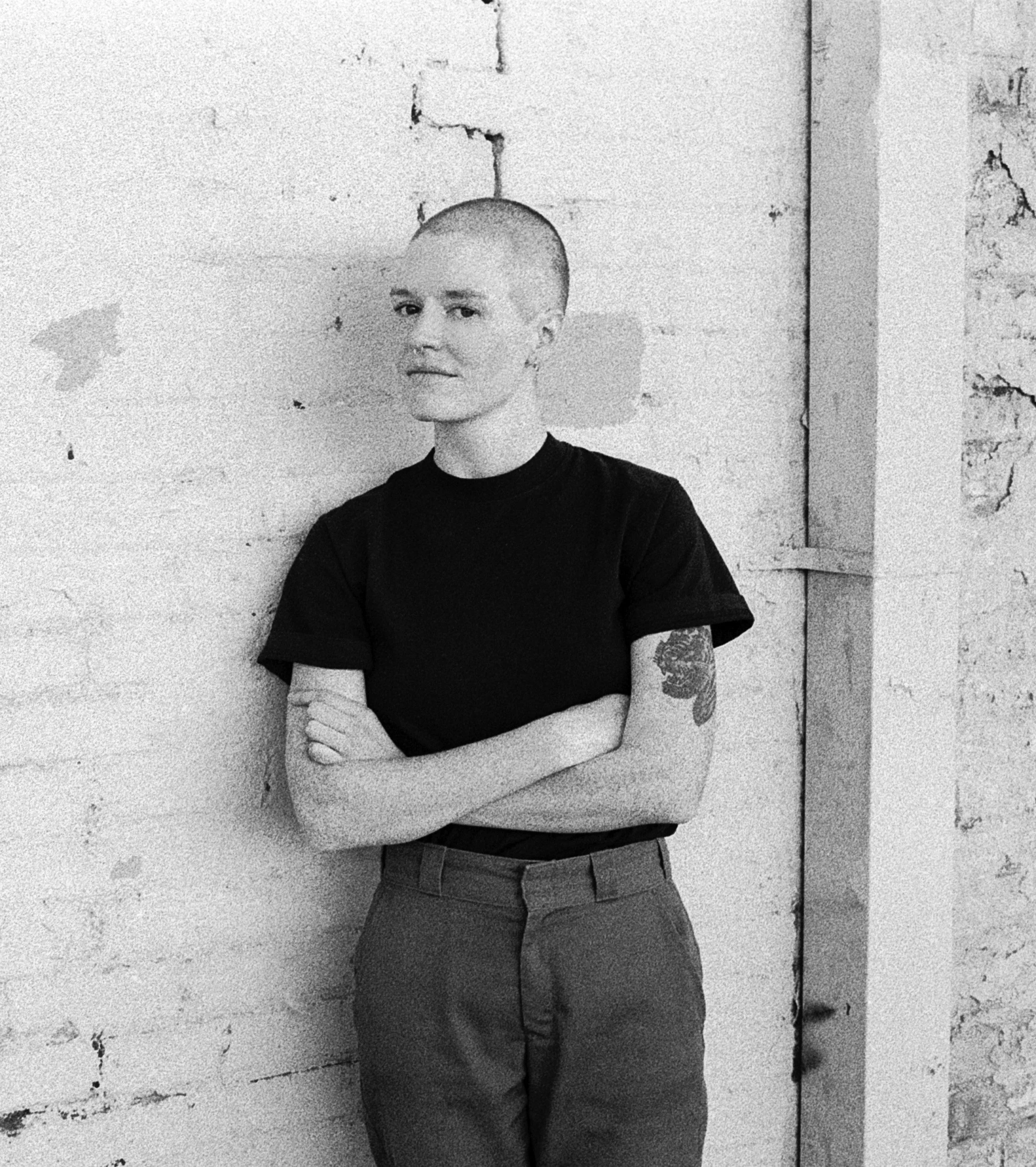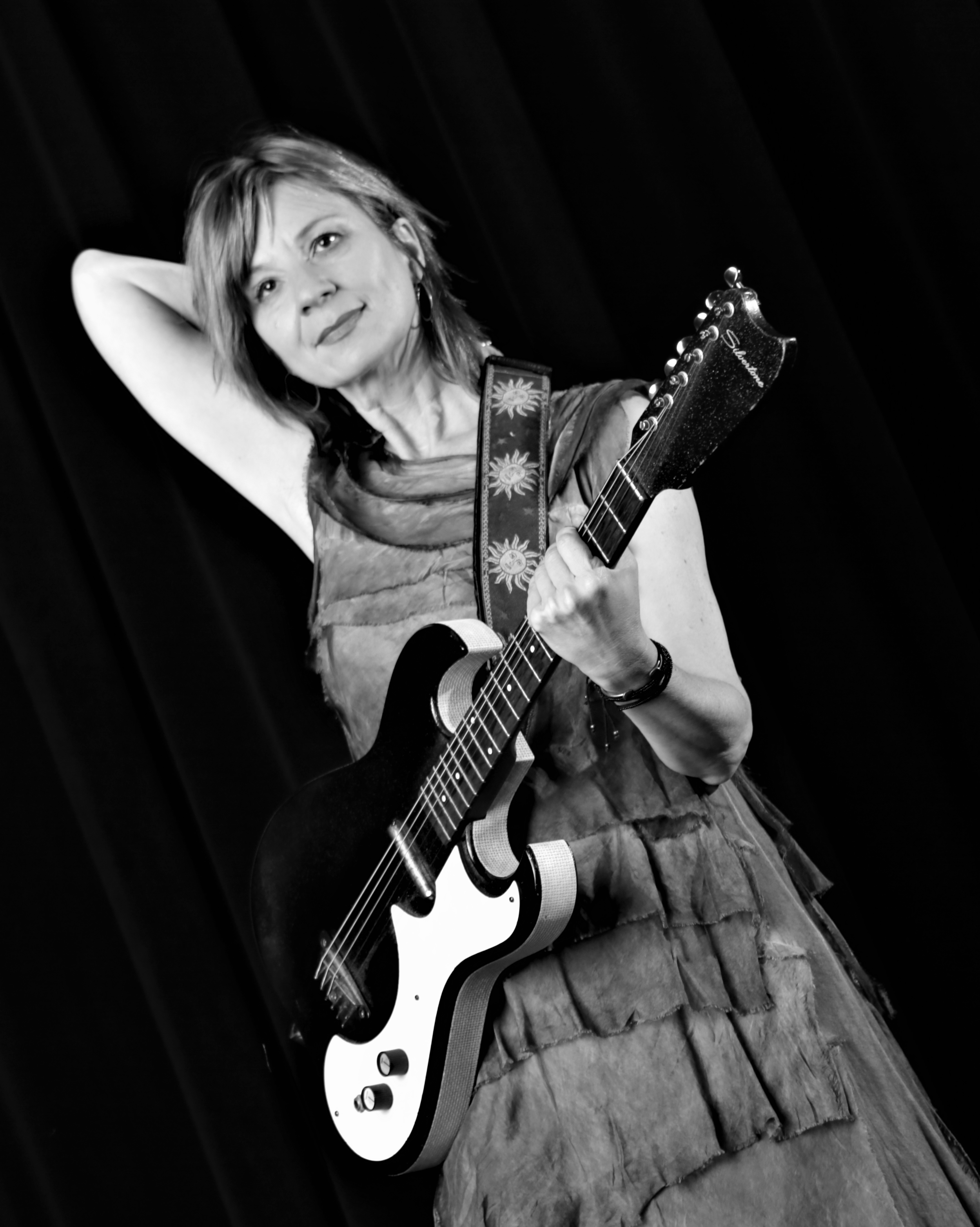ESZTER BALINT'S musical anti-memoir
Photo by Peter Yesley
Songwriter/violinist/actress Eszter Balint’s stage production of I Hate Memory, originally set to premiere in 2020 but postponed due to the pandemic, is back this July 26 at NYC’s Joe’s Pub (Note: rescheduled from July 8), with another performance planned for this fall.
Written by Eszter and based on an original concept by her and Tony Award-winner Stew, I Hate Memory is an “anti-musical” “co-starring the Streets of New York and the Late 20th Century featuring Family, Film, Fame, Immigration, Joy, Theater, Shame, Dance Floors, Open Doors, Papaya Ice Cream, and the Shah of Iran’s Wife.”
In this brief interview, Eszter checks back in with INTERLOCUTOR and talks about the ways the production was impacted by the pandemic and how it has subsequently evolved. Read our in-depth interview with Eszter from May 2020, where she talks about her deep family roots in the arts and the NYC downtown art, music, and film worlds of the late 70s and 80s.
Interview by Interlocutor Magazine
Your “anti-musical” I Hate Memory was originally set to premiere at Dixon Place in New York in March 2020 but was postponed due to Covid. Now it’s finally premiered at Joe’s Pub, with the next show on July 26. With the show's focus on memory and life experience, have you incorporated any new experiences over the past two years into the show (both your own and world events)? How has it evolved from its original incarnation, and in what ways did the delay impact its creative evolution?
In a general sense, wherever I'm at personally, at any given time, is going to affect the show in a lot of subtle ways which I may not even fully understand. It always has to have meaning and relevance to me. Otherwise I won't do it.
The songs have remained, and most of the cast has remained and much of the foundational text is the same; though that is always being finessed. But some of the ideas that resonate most throughout may have shifted ever so slightly. Some aspects have taken on new meaning, which keeps it fresh.
Obviously with the enormous events of the past few years, there is an impact. And just letting it sit and simmer while we couldn’t perform had an impact too. But there is nothing specific or concrete to world events which I have incorporated in any overt way.
I wondered at first if the show is still relevant with all the stuff that’s happened, and I had to sit with that; not comfortable. I quickly realized that it’s more relevant now precisely because of all the things that have happened. For one specific example, there is a section of the show that is ever more resonant post George Floyd; even though it was written before. But also, in many ways the show is about falling in love with not just New York but also an idea about America, and the heartbreak that follows. (It’s also about a lot of other things – but there is an echo of that theme throughout.) So that part is clearly extremely and especially relevant now.
I also came around to feeling that there are a lot of terrible things going on that I cannot do much if anything about. But doing something personally meaningful, creating, sharing your work, is an act that means you still care about your world. And caring about our world despite these incredibly harsh few years is the most crucial thing.
Photo of Stew and Eszter by Yoon Photography, from a performance of an early version of I Hate Memory
You still call I Hate Memory a “work in progress” – do you think it will constantly evolve, or do you foresee a “definitive” or final version ever emerging?
I stand behind this version without apology, but it is still in development, I feel. But even when it reaches its so called final destination – oh no, that sounds like a kind of death – it’s a breathing living thing. I want to be able to play with it just a bit and discover new things, new hidden ideas in it. Lucy [Sexton, the director] has been a wonderful creative partner in that way. I’m a tweakaholic, ha. There is nothing more fun than when a new layer reveals itself and we can dig into it further.
Eventually Lucy and I see two trajectories for this piece. This current more stripped down and flexible version, which is like a theatrical concert, can easily travel and be presented at more intimate venues, such as a Joe’s Pub. But there exists another much more fleshed out theatrical version of this piece in our minds which we’d like to pursue. With the same foundational text, the same songs, a lot of the same ideas/performers, but it would include much more ambitious visuals and some stagecraft, perhaps a restructuring. We haven’t gotten to yet, but this is what we’re working towards. I guess you can call that the definitive version.
Recent performance of I Hate Memory at Joe’s Pub
This current version of I Hate Memory is produced in association with ArKtype/Thomas O. Kriegsmann, and the band/cast includes Felice Rosser, David Nagler, Marlon Cherry, Esme Thorne, and Tammy Faye Starlite. Were ArKtype and any of these band members originally involved, or are these new additions to the production? In what ways have they contributed to the evolution of this project?
Most of these people, with the exception of Tommy Kriegsmann/ArKtype, were involved from the time we planned to open it at Dixon Place. The role of Esme Thorne has grown a lot, she is now essentially the lead. She is a truly special and rare find, a big talent. She’s very young, 14, and hangs with the rest of us olds in the easiest, most impressive way. The band is a bit more involved now in the “performance” aspect, which is fantastic. They bring their personal presence and flavor to the show – as well as their musicianship. I love that and am quite attached to our current crew. But if there are changes in that regard down the line with the performers – because this is New York and people are busy, for instance – I'll have to look for having the same type of kinship with whoever we bring in. The personal stage presence is so important.
Tommy is fantastic to have on board. His company ArKtype is great, he works with a lot of adventurous theatrical projects, often ones with a crucial musical component. We just started working with him so that’s new, but I’m so grateful Lucy brought him on board. Having a producer partner with us is something we’ve been wanting, and I feel he really gets this piece.
Eszter with Esme Thorne during a recent Joe’s Pub performance of I Hate Memory
Are there any performances of I Hate Memory currently planned beyond July 26? Do you foresee ever taking this production on the road or another city? And is there a set date yet for the accompanying soundtrack album's release?
We’ll have another date at Joe’s Pub in the fall of 2022, and beyond that, nothing concrete but we hope to develop it further, as I said, into a more theatrical production via a residency or such. So fingers crossed that’s in the works.
During the pandemic I recorded the songs, and it’s been quite a difficult patchwork process because of Covid, but it’s all coming along in a wonderful way finally. I’m pleased. We’re wrapping up mixing as we speak. It features Stew, and I produced it with Kato Hideki, who played bass in the early version of the show (and may do so again.) I’m nearly done, and I’m hoping for the fall Joe’s Pub show to be a record release event.
I Hate Memory
Performed by:
Eszter Balint
Esme Thorne
David Nagler
Marlon Cherry
And special guests Felice Rosser and Tammy Faye Starlite
(The performance of I Hate Memory at Joe’s Pub has been rescheduled to July 26).









